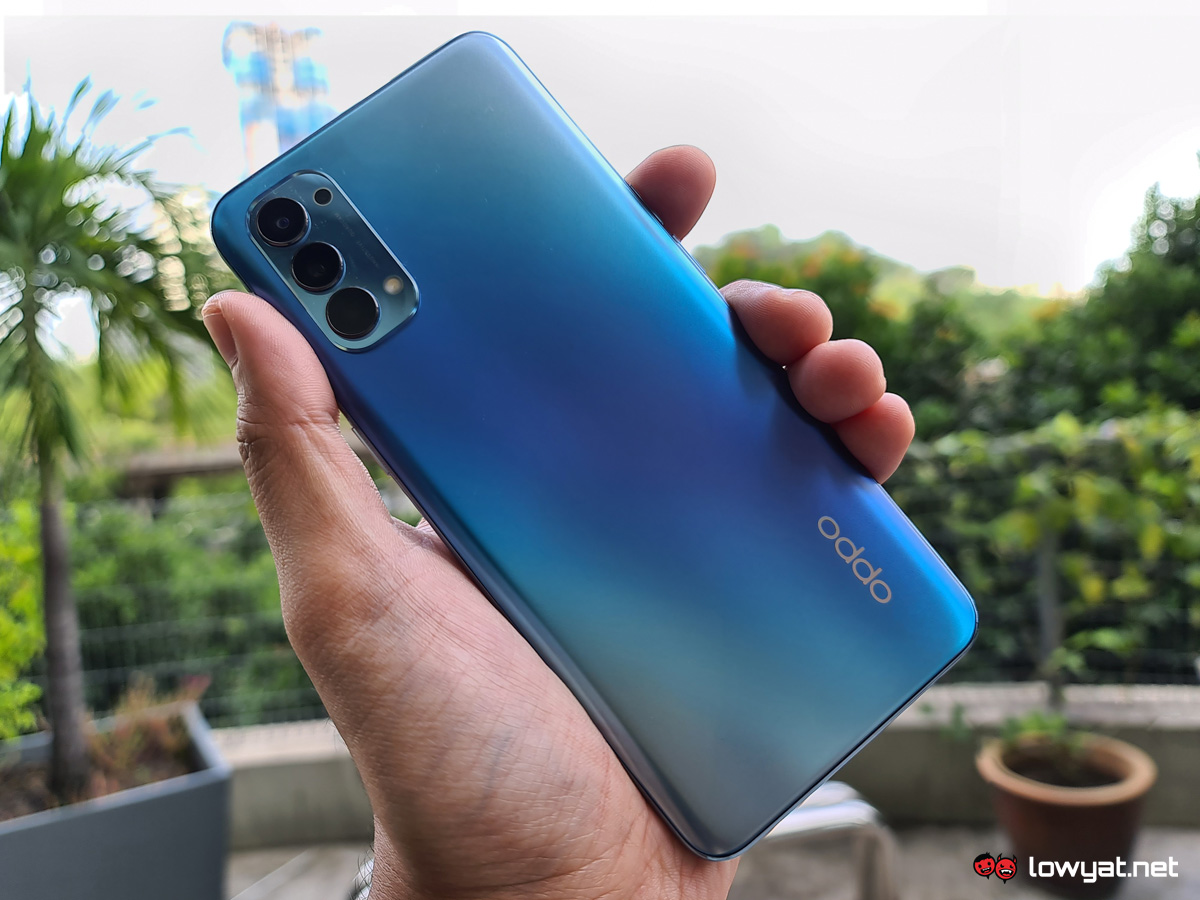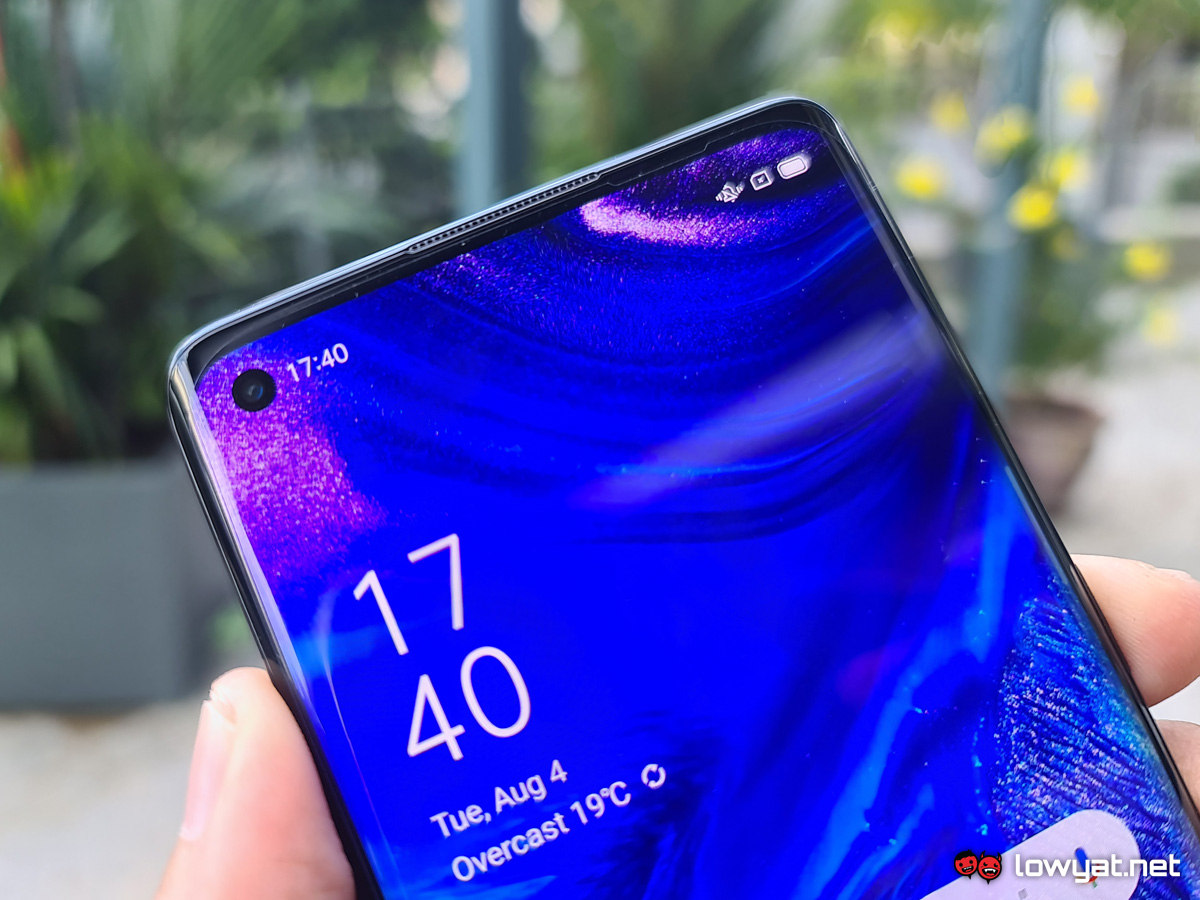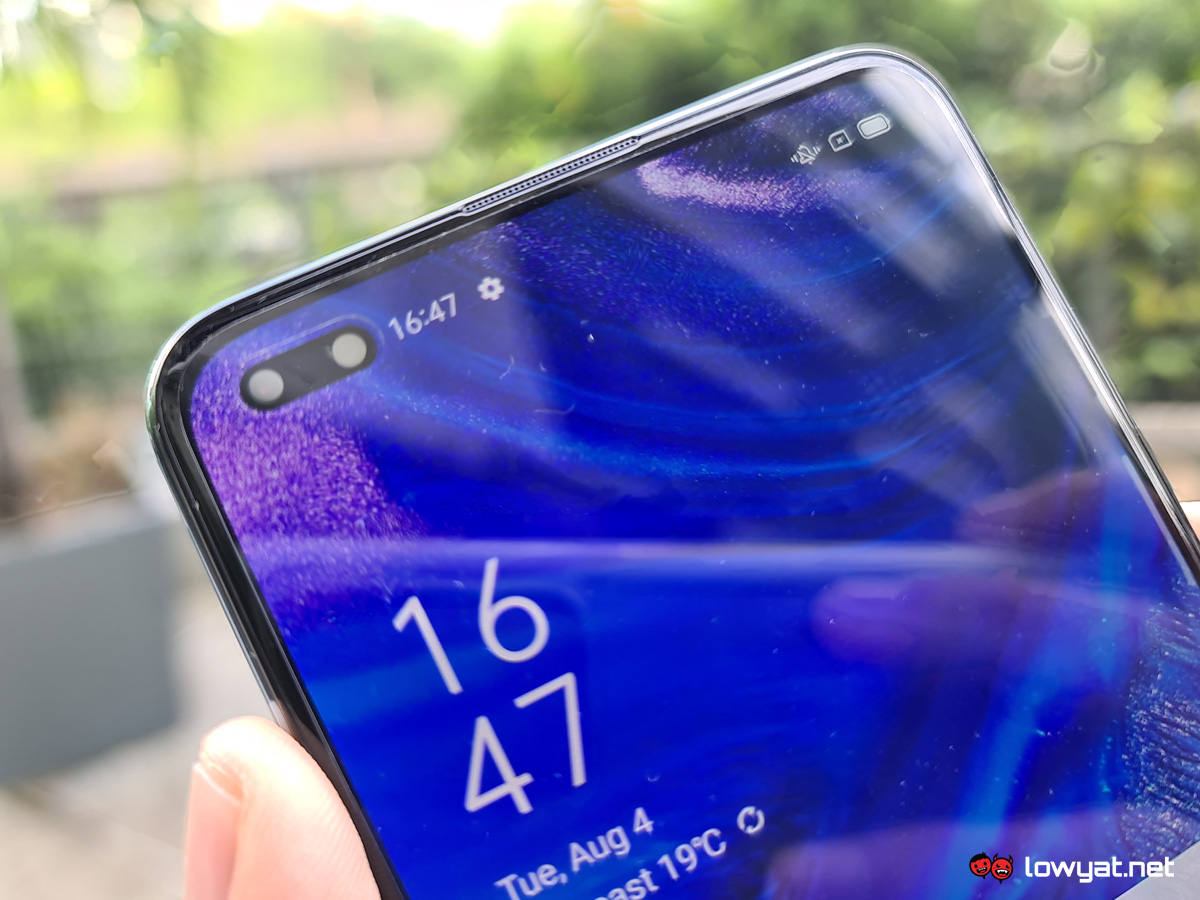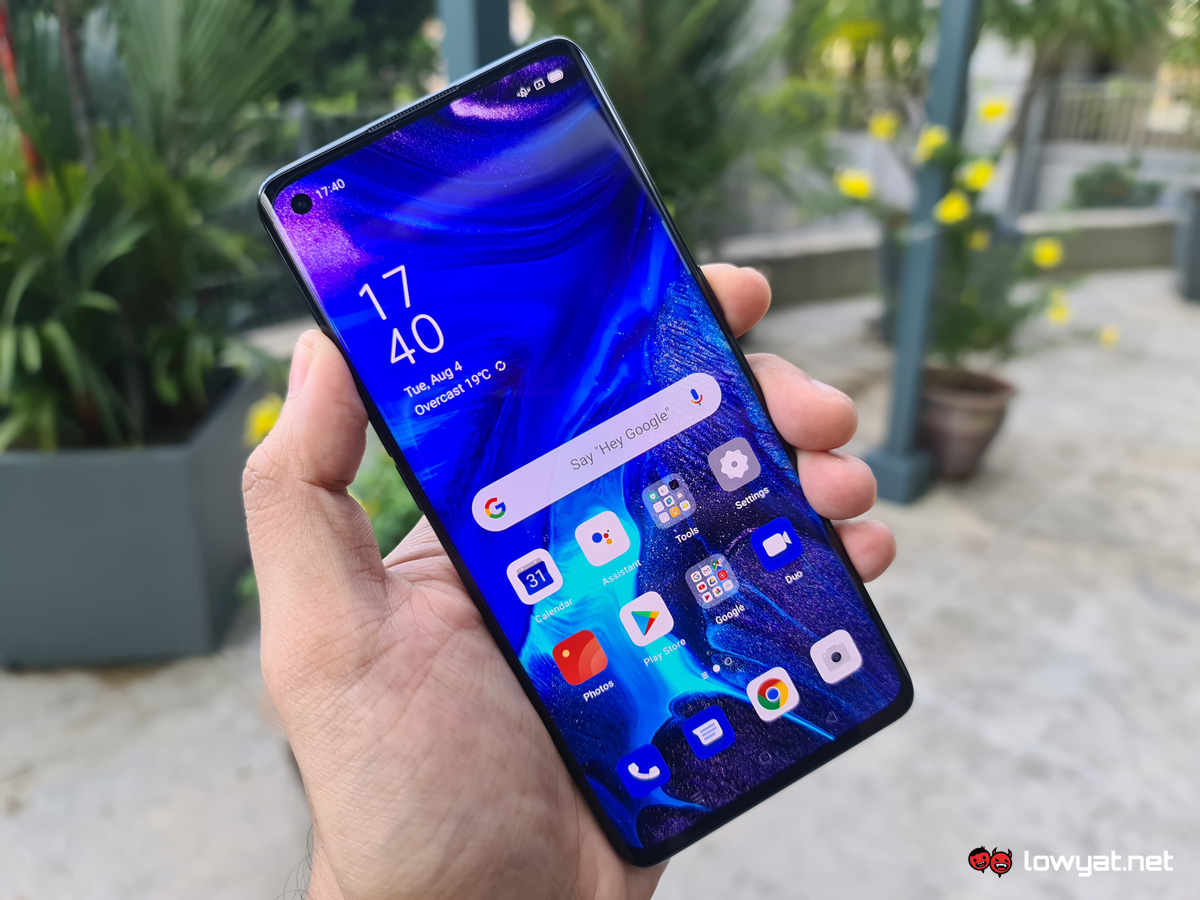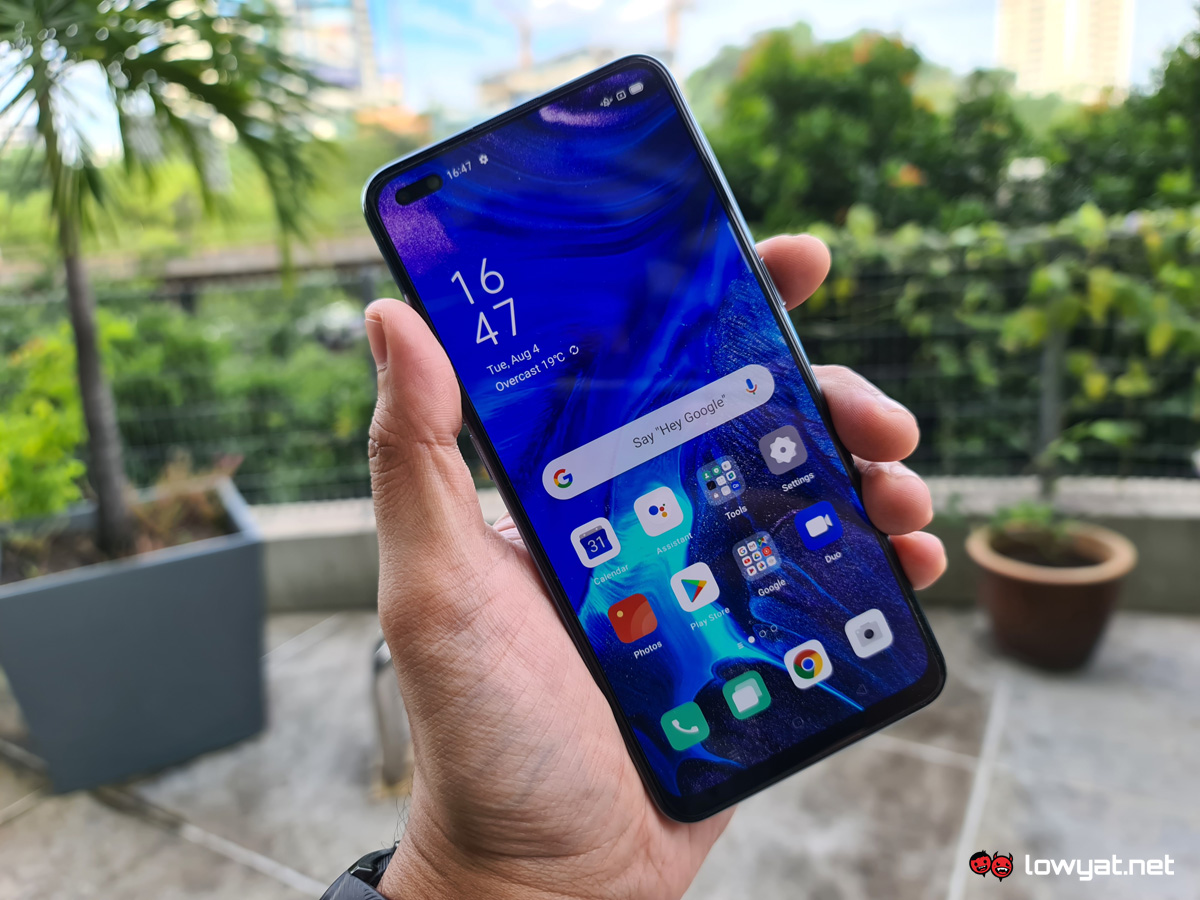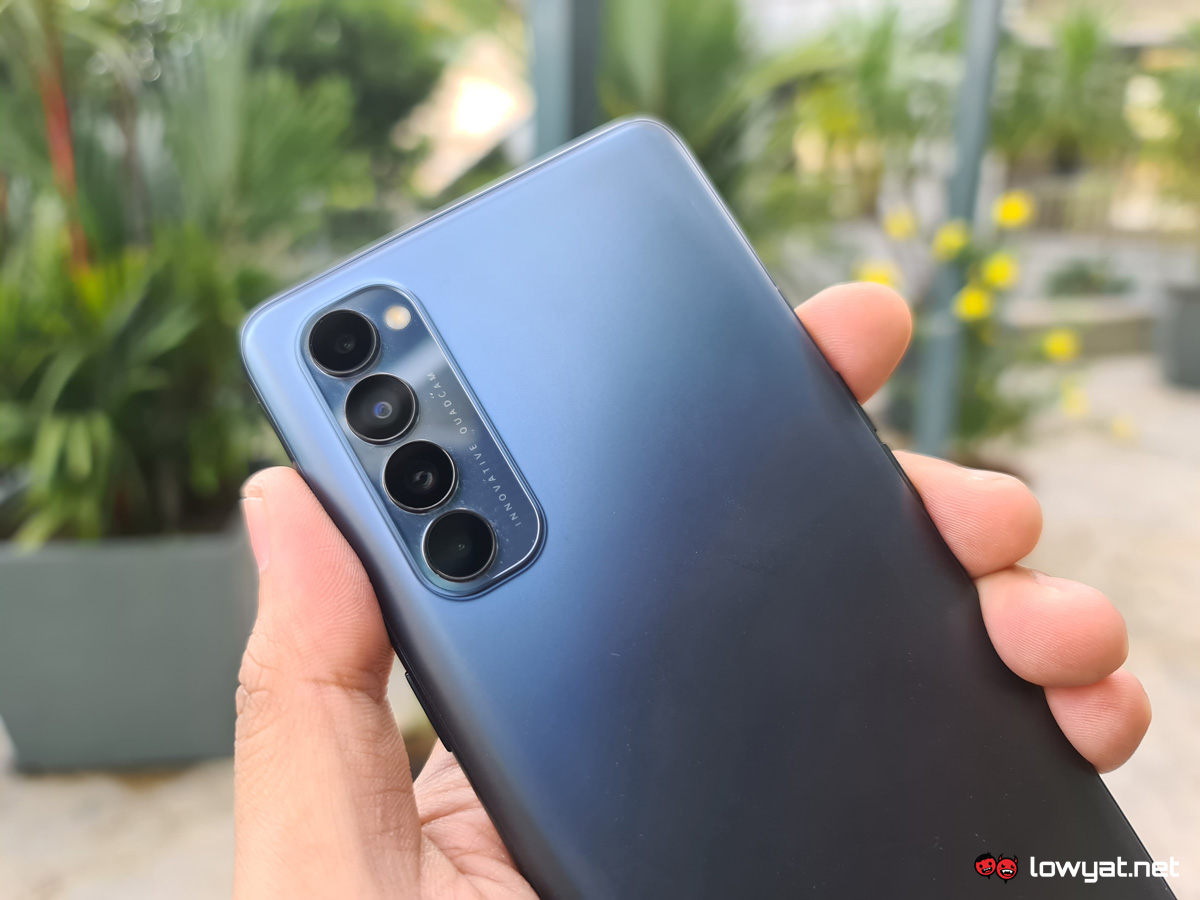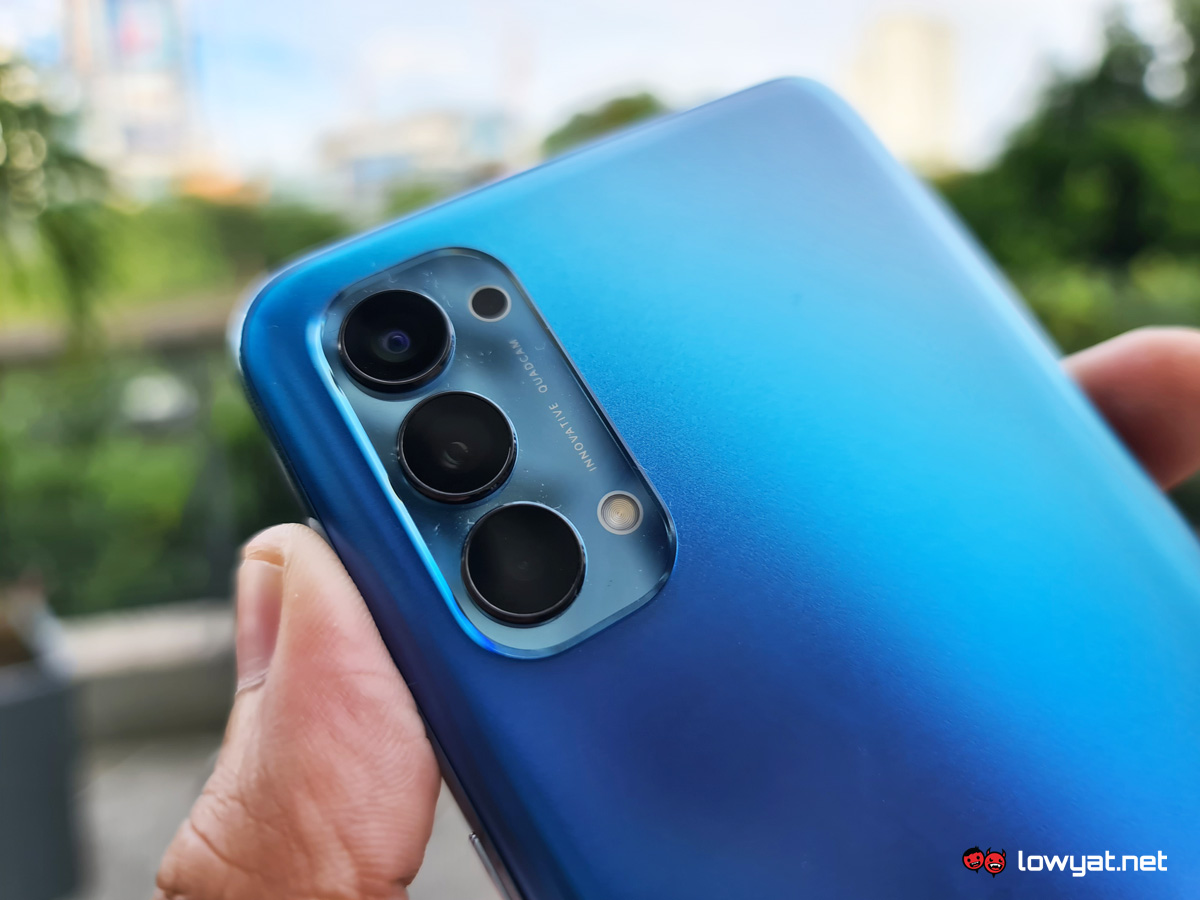Prior to the series’ launch, I have been given the opportunity to test out both phones. And to further explain why both phones perform somewhat similarly with each other, I decided to round-up my first impressions for the devices in one article. The Reno4 comes with a 6.43-inch AMOLED display, while the Pro version features a larger 6.55-inch curved AMOLED screen. On that note, the latter comes with a higher 90Hz refresh rate and 180Hz sampling rate, which are absent on the vanilla model. Although both of them have cutouts on the upper left corner of their displays, the Reno4 features a pill-shaped one while the Pro has a single punch-hole camera housing. Storage-wise, the Reno4 features 128GB of internal storage (expandable up to 256GB via microSD) and the Pro variant comes with a non-expandable 256GB. Differences in terms of battery is very slight, where the standard variant offers an extra 15mAh over the Pro’s 4,000mAh capacity. But what really sets them apart in this department is their fast charging capabilities; the Reno4 supports 30W, while the Pro features a blazing fast 65W fast charging technology. Both Reno4 phones are comfortable to hold and use in one hand, and I’m quite fond of the matte finishing on the back of their case. They are lightweight, although the Pro obviously packs a bit more heft than the standard version. The volume rockers are located on the left side of either phone, while the lock button is situated on the right.
Display-wise, the Reno4 Pro will undeniably stand out more thanks to its higher refresh rate and curved display, which also gives it a more premium feel. But if you’re okay with not having either of those aforementioned perks, then I’m sure you’ll find the standard variant’s screen to be just as good in terms of visual quality. There’s hardly any noticeable difference in terms of overall performance for either model, since they are equipped with the same Snapdragon 720G chipset and RAM capacity. In that regard, it’s all smooth sailing when it comes to my typical daily drive, multitasking, media consumption and even gaming. Amusingly enough, there were times that I’ve forgotten which Reno4 model I was testing due to their similarities. The same can be said for their cameras as well. Despite the different layout, the Reno4 and its Pro variant actually have the same sensor setup – which applies to their front-facing shooters as well. The cameras deliver sharp and punchy visuals, and perform exceptionally well in low light – the latter is one of their major selling points after all. Both devices are capable of shooting Full HD at up to 60p, 4K at 30p and super slow motion at up to 960fps. Typical of most smartphone camera offerings, they also come with additional modes such as Portrait, Time-Lapse, Panorama, and so on.
The OPPO Reno4 Series will be available in stores nationwide on 8 August 2020, with the standard model priced at RM1,699 and the Pro at RM2,399. So would a larger premium display and faster charging speed make the OPPO Reno4 Pro a better choice over the standard version? Well, the answer to that question will have to wait until we put out a full review for the new OPPO smartphones.
